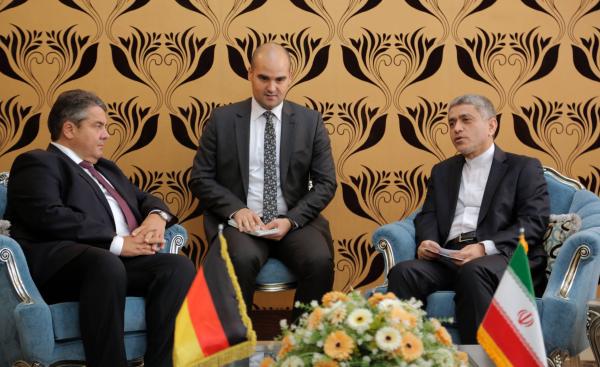The speaker of the Iranian parliament, Ali Larijani, cancelled talks with German Economy Minister Sigmar Gabriel in Tehran on Tuesday. Gabriel, a high-profile visitor, had urged Iran to pursue reforms at home and act responsibly in Syria. No reason was given for the cancellation, a spokeswoman for Gabriel said.
Larijani, was the highest-ranking figure Gabriel was due to meet on his two-day trip, aimed at boosting trade ties after Tehran’s landmark deal with world powers to scale back its nuclear program.
Gabriel had on Monday backed reforms pursued by Iran’s President Hassan Rouhani, saying: “The alternative to the current government is a return to the times of great confrontation.”
He also said Iran, which provides economic and military support to Syrian regime head Bashar al-Assad, should help push for a ceasefire in Syria’s civil war, adding: “I think Iran knows its responsibility there.”
Sadeq Larijani, brother of the parliament speaker and head of Iran’s judiciary, criticized Gabriel on Monday for his comments. “If I were in the government’s position or in the foreign minister’s shoes I would never let such a person come to Iran,” he said.
The apparent snub to Gabriel highlighted the challenge facing Western governments as they try to cultivate ties with Iran’s political leadership, divided between moderates and hardliners, and seek to position their companies for lucrative new business deals.
